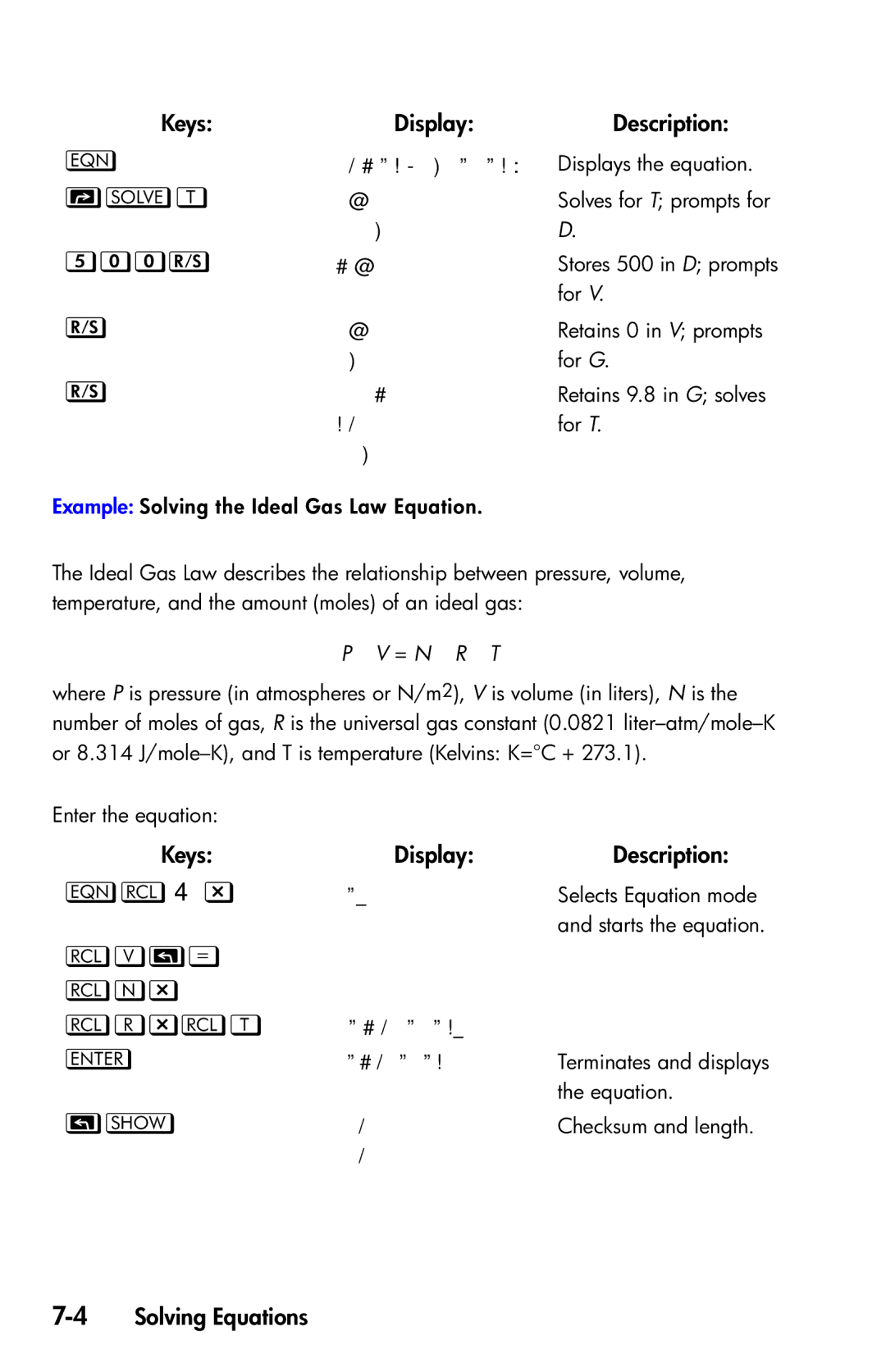Keys: | Display: | Description: |
| | Displays the equation. |
| | Solves for T; prompts for |
| | D. |
| | Stores 500 in D; prompts |
| | for V. |
| | Retains 0 in V; prompts |
| | for G. |
| | Retains 9.8 in G; solves |
| | for T. |
| |
|
Example: Solving the Ideal Gas Law Equation.
The Ideal Gas Law describes the relationship between pressure, volume, temperature, and the amount (moles) of an ideal gas:
P ⋅ V = N ⋅ R ⋅ T
where P is pressure (in atmospheres or N/m2), V is volume (in liters), N is the number of moles of gas, R is the universal gas constant (0.0821
Enter the equation:
Keys: | Display: | Description: |
P | _ | Selects Equation mode |
|
| and starts the equation. |
|
|
|
|
|
|
| _ |
|
| | Terminates and displays |
|
| the equation. |
| | Checksum and length. |
| |
|
